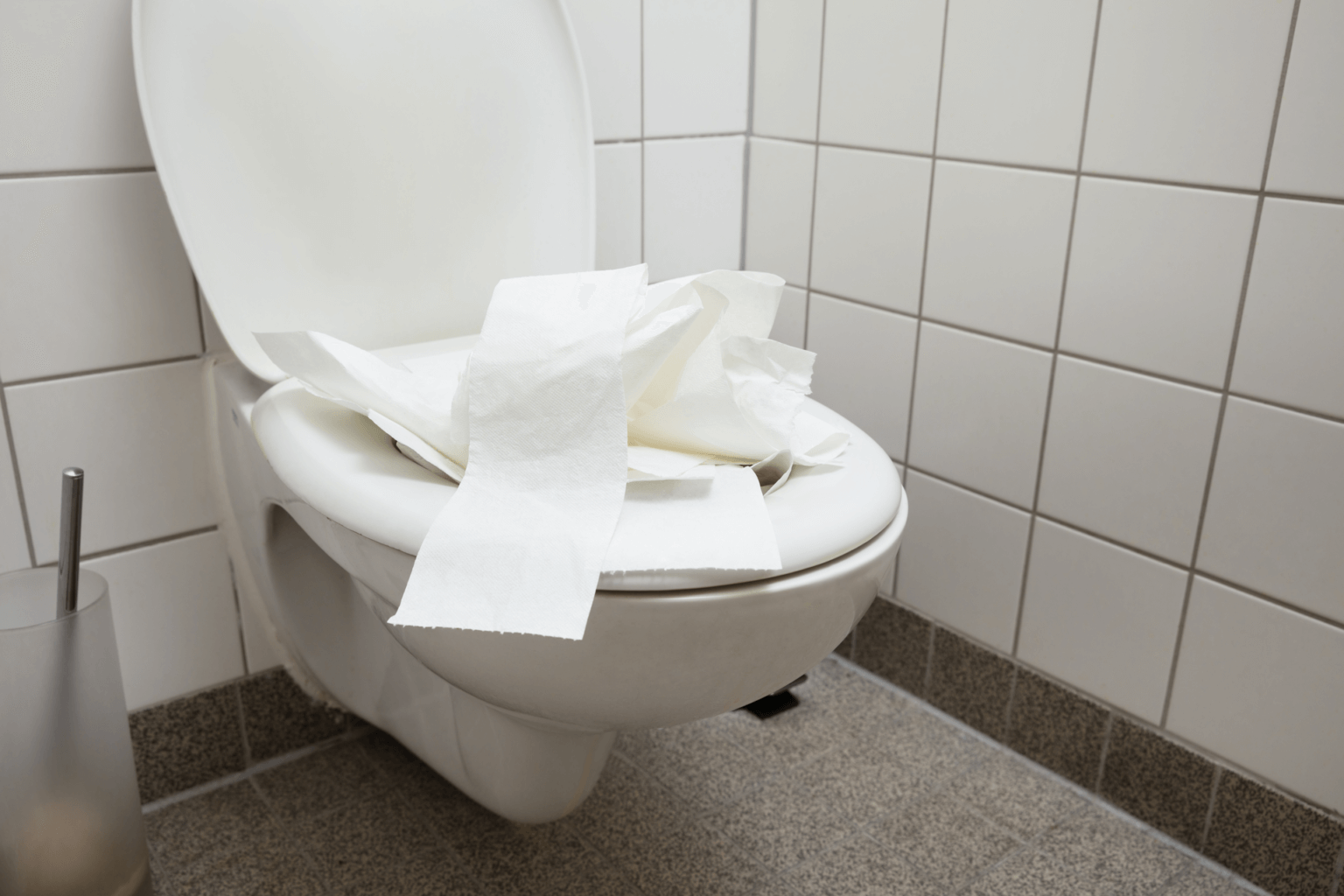A blocked toilet is more than just a minor inconvenience; it can bring your household to a standstill and, if left unaddressed, can lead to serious plumbing issues and water damage. While many homeowners in Birmingham will experience a clog at some point, understanding the root causes is the first step toward prevention. Here at Aquila Property Care, your trusted home improvement and plumbing experts, we’ve identified the most common culprits behind blocked toilets and offer practical advice on how to keep your system running smoothly.
1. Flushing Non-Flushable Items
This is, by far, the most frequent cause of blocked toilets. The only two things that should ever go down a toilet are human waste and toilet paper. Everything else, no matter how small or seemingly harmless, should go in a bin.
- The Culprits: “Flushable” wipes, paper towels, facial tissues, cotton balls, cotton swabs, sanitary products, and dental floss are all common offenders. Despite what their packaging might claim, these items do not break down in water the way toilet paper does. Instead, they accumulate in your pipes, forming a stubborn, tangled mass that can cause a major blockage.
- How to Prevent It: Place a bin with a lid in every bathroom and educate your family members on what should and shouldn’t be flushed. It’s a simple change that can save you a world of hassle and expense.
2. Using Too Much Toilet Paper
While toilet paper is designed to break down, using an excessive amount in a single flush can overwhelm your plumbing system. This is a particularly common issue in homes with older, low-flow toilets that lack the flushing power of newer models.
- The Culprit: Large clumps of toilet paper can get stuck in the toilet’s P-trap—the curved pipe at the base of the toilet—and create a blockage. This is especially true for thick, plush, or multi-ply toilet paper, which takes longer to dissolve.
- How to Prevent It: Encourage everyone in your household to use a moderate amount of toilet paper. If you need to use more, or if your toilet has a weak flush, consider doing a “double flush”: flush the waste first, then flush the toilet paper separately. This helps to ensure that everything clears the pipes.
3. Tree Root Invasion
While this problem is less common than the others, it can be the most serious. Tree roots are naturally drawn to water sources and can find their way into small cracks in your underground sewer lines.
- The Culprit: Once inside, the roots grow and expand, creating a massive blockage that can eventually cause your entire plumbing system to back up.
- How to Prevent It: If you have large trees in your garden, especially older ones, be mindful of their proximity to your sewer lines. Regular plumbing inspections can help detect a tree root problem before it becomes a major disaster. A professional plumber can also use specialised tools to remove the roots without damaging your pipes.
4. Old or Faulty Plumbing
Sometimes, the issue isn’t what you’re flushing, but the state of your plumbing system itself. Older homes in Birmingham might have cast-iron pipes that have corroded over time, creating a rough interior surface where debris can easily snag and build up. A faulty fill valve or flapper in your toilet tank can also lead to a weak flush, making it difficult for the toilet to properly clear waste.
- How to Prevent It: For a weak flush, a simple repair to the fill valve or flapper may be all that’s needed. For older, corroded pipes, a full repiping of your home’s system might be the best long-term solution.
Understanding the causes of blocked toilets allows you to be proactive and avoid costly, messy, and unpleasant situations. If you’ve tried using a plunger without success, or if you have a recurring blockage, it’s time to call in the professionals. Our expert plumbers in Birmingham can quickly diagnose and solve any toilet-related issue, big or small. You can trust Aquila Property Care for all your home improvement and plumbing needs.


